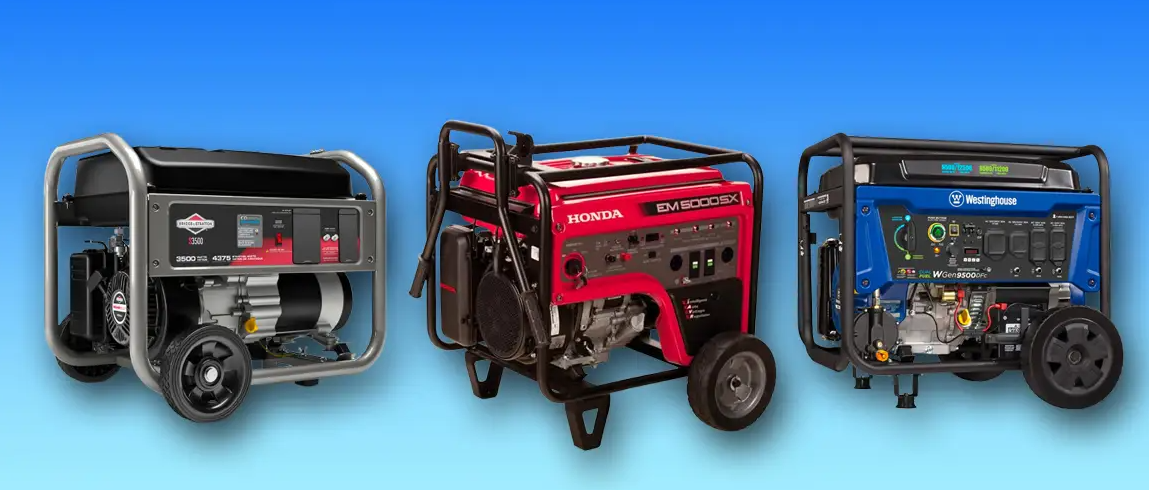Running a food trailer is an exciting venture that combines culinary passion with entrepreneurial freedom. However, to ensure smooth operations and consistent customer satisfaction, having a reliable power source is non-negotiable. Choosing the Right Electric Generator for Your Food Trailer: Power Your Business Efficiently is critical for maintaining your appliances, lighting, and overall business functionality.
In this comprehensive guide, we will explore the key considerations for selecting the perfect electric generator, ensuring your food trailer runs seamlessly and efficiently.
Why a Reliable Generator is Essential for Food Trailers
A food trailer operates as a mobile kitchen, requiring power for various appliances such as refrigerators, fryers, grills, and point-of-sale systems. Without a dependable generator, your ability to serve customers and maintain food safety standards could be compromised.
Key Benefits of a Reliable Generator:
- Consistent Power Supply: Keeps your appliances running without interruption.
- Flexibility: Allows you to operate in different locations without relying on external power sources.
- Customer Satisfaction: Ensures your food and beverages are prepared and served efficiently.
- Compliance: Meets food safety regulations by maintaining proper temperatures for storage.
Investing in a high-quality generator is essential to maximize your operational efficiency and avoid unexpected downtime.
Types of Generators Suitable for Food Trailers
Not all generators are created equal. Selecting the right type of generator depends on your specific power needs and operational preferences.
1. Portable Generators
Portable generators are versatile and relatively affordable. They are easy to transport and suitable for smaller food trailers with moderate power demands.
- Pros:
- Affordable and widely available.
- Easy to move and set up.
- Suitable for light-duty applications.
- Cons:
- Limited power capacity.
- Higher noise levels compared to other types.
2. Inverter Generators
Inverter generators are known for their efficiency and quiet operation. They produce clean energy, making them ideal for sensitive electronic equipment.
- Pros:
- Fuel-efficient with low noise levels.
- Compact and lightweight.
- Provides stable power for electronic appliances.
- Cons:
- Higher upfront cost.
- Limited power output for larger setups.
3. Standby Generators
Standby generators are powerful and can handle heavy-duty power demands. These are suitable for larger food trailers or those with multiple high-energy appliances.
- Pros:
- High power capacity.
- Automatic start during power outages.
- Reliable for long-term operations.
- Cons:
- Expensive and requires professional installation.
- Less portable.
Factors to Consider When Choosing a Generator
When selecting the right electric generator for your food trailer, you need to assess several critical factors. These considerations ensure you make an informed decision that aligns with your business needs.
1. Power Output Requirements
Calculate the total wattage of all the appliances and equipment in your food trailer. Add a 20% buffer to ensure your generator can handle peak usage.
Example Table: Appliance Wattage Calculation
| Appliance | Average Wattage | Quantity | Total Wattage |
|---|---|---|---|
| Refrigerator | 800 | 1 | 800 |
| Griddle | 1,500 | 1 | 1,500 |
| Lighting | 200 | 5 | 1,000 |
| POS System | 200 | 1 | 200 |
| Total | 3,500 |
2. Fuel Type
Generators run on different fuel types such as gasoline, diesel, propane, or natural gas. Consider the availability and cost of fuel in your area.
- Gasoline: Easy to find but less fuel-efficient.
- Diesel: More efficient but generates higher emissions.
- Propane: Cleaner and quieter but requires a separate storage tank.
- Dual-Fuel Options: Offers flexibility for switching between fuel types.
3. Noise Levels
Operating in a noisy environment can deter customers. Opt for generators with lower decibel ratings (below 70 dB) to ensure a pleasant customer experience.
4. Portability and Size
Consider the physical space in your food trailer and the ease of transporting the generator. Compact and lightweight models are ideal for smaller setups.
5. Durability and Maintenance
Invest in a generator from a reputable brand known for reliability. Check for features like sturdy construction, easy access for maintenance, and a solid warranty.
Tips for Efficient Generator Usage
Maximizing the efficiency and lifespan of your generator requires proper usage and maintenance. Follow these tips to ensure optimal performance:
- Regular Maintenance: Clean filters, check oil levels, and perform periodic inspections.
- Avoid Overloading: Use a generator with sufficient capacity to prevent overheating.
- Fuel Storage: Keep fuel in a safe and accessible location.
- Eco Mode: Use eco-friendly settings to reduce fuel consumption and noise levels.
- Safe Placement: Position the generator away from the food trailer to minimize noise and fumes.
Top Generator Recommendations for Food Trailers
Here are some popular generator models that align with the power needs of food trailers:
| Generator Model | Type | Power Output (Watts) | Noise Level (dB) | Price Range |
| Honda EU7000iS | Inverter | 7,000 | 52-60 | $4,500-$5,000 |
| Yamaha EF2000iSv2 | Inverter | 2,000 | 51.5 | $1,000-$1,200 |
| DuroMax XP12000EH | Dual Fuel | 12,000 | 74 | $1,300-$1,500 |
| Westinghouse WGen7500DF | Dual Fuel | 7,500 | 72 | $800-$1,000 |
| Generac GP8000E | Portable | 8,000 | 70 | $1,000-$1,200 |
Frequently Asked Questions (FAQs)
1. How do I determine the right generator size for my food trailer?
Calculate the wattage requirements of all your appliances and add a 20% buffer to accommodate peak usage. This ensures your generator can handle the load without overloading.
2. Can I use a regular home generator for my food trailer?
While some home generators may work, it’s best to choose models designed for commercial or mobile use to ensure durability and reliability.
3. What is the best fuel type for food trailer generators?
The best fuel type depends on your priorities. Gasoline is widely available, propane is cleaner, and diesel is more fuel-efficient.
4. How can I reduce generator noise near my food trailer?
Opt for inverter generators or use noise-reducing accessories like soundproof enclosures. Position the generator away from customer areas.
5. Do I need a backup generator for my food trailer?
Having a backup generator can be helpful in case of emergencies, especially during high-demand periods or extended events.
6. How often should I maintain my generator?
Perform maintenance every 100 hours of use or according to the manufacturer’s recommendations. Regular servicing ensures longevity and efficiency.
7. What safety measures should I follow when using a generator?
Always place the generator outdoors, away from enclosed spaces, to prevent carbon monoxide poisoning. Use surge protectors to safeguard your appliances.
8. Can I connect my food trailer generator to a solar power system?
Yes, hybrid systems combining generators with solar panels can be an eco-friendly and efficient solution for powering your food trailer.
Conclusion
Selecting the right electric generator for your food trailer is a crucial decision that directly impacts your business’s efficiency and success. By considering factors like power output, fuel type, noise levels, and portability, you can make an informed choice that aligns with your operational needs.

